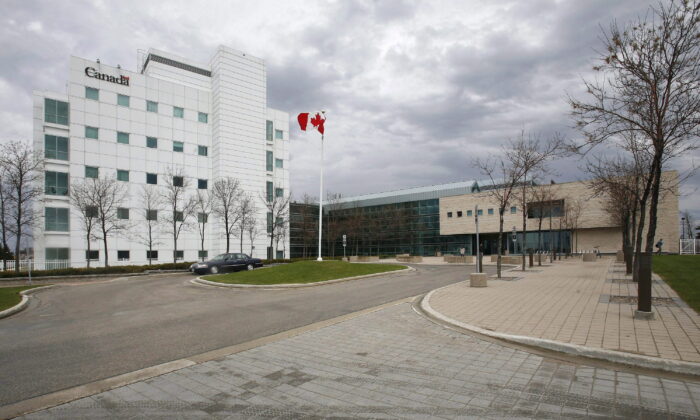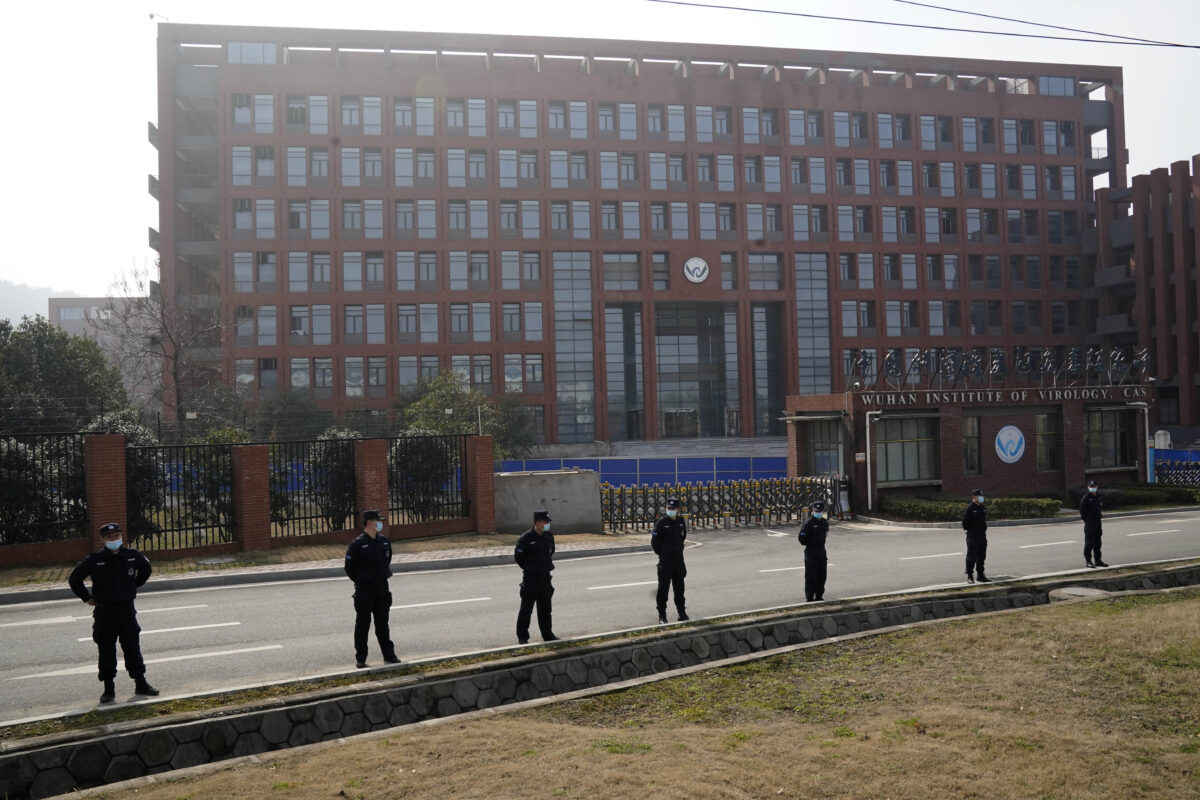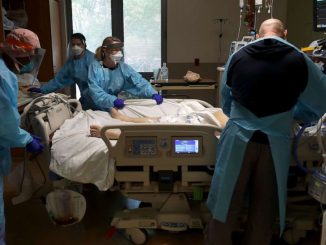
Conservative MP Garnett Genuis says he is committed to getting to the bottom of the case regarding the transfer of deadly viruses from a lab in Canada to the Chinese military-affiliated Wuhan Institute of Virology (WIV).
Two Chinese scientists, Xiangguo Qiu and her husband Keding Cheng, and some of Qiu’s students from China, were escorted from the National Microbiology Laboratory (NML) and stripped of their security access on July 5, 2019.
The Winnipeg lab—Canada’s highest security Level 4 lab, works with some of the deadliest human and animal pathogens, such as Ebola.
“The official line-up till now has been that the expulsion of these scientists had nothing to do with the transfer of deadly viruses to Wuhan. And yet that expulsion took place a few months later,” Genuis, a member of Canada-China parliamentary committee, told the Epoch Times on April 22.
Their removal from the lab raises a lot of questions, Genuis said.
“If it wasn’t related to the transfer of viruses, was there another reason that they were expelled, and what was that? the MP asked. “Are we applying appropriate scrutiny in cases where dangerous viruses are transferred to the entities which are subject to Chinese state control?”
The Public Health Agency of Canada (PHAC) said that their removal was due to a possible “policy breach” and administrative reasons, which the RCMP in Manitoba was investigating.
In June 2020, through an Access to Information request, CBC obtained documents revealing that Qiu had shipped lived samples of the deadly Ebola and Henipah viruses to China’s WIV on March 31, 2019, four months before she and Cheng were escorted from the NML.
But the PHAC said their eviction had nothing to do with their removal.
“The administrative investigation is not related to the shipment of virus samples to China,” wrote Eric Morrissette, chief of media relations for Health Canada and PHAC, in an email to CBC last June.
In February, Morrissette confirmed the two were no longer employed by the PHAC as of Jan. 20, but didn’t elaborate further.
“We cannot disclose additional information, nor comment further, for reasons of confidentiality” Morrissette wrote in an email to CBC.

The non-disclosure by the PHAC, however, prompted the Canada-China Relations Committee (CACN) to summon the agency’s president Iain Stewart and Dr. Guillaume Poliquin, acting vice-president of NML, to testify before the committee on March 22.
Despite being grilled by opposition MPs, Stewart refused to provide details about PHAC’s investigation and the reasons why the two scientists were removed from the NML.
“They are no longer with the agency, we undertook investigation, and I am not really at liberty to talk more about that,” Stewart said.
When asked by Genuis, who is also the vice-chair of CACN, if there has been any case of any government lab firing scientists due to security breaches or improper transfer of viruses, Stewart said “that’s a very difficult question to answer.”
The PHAC president continued to avoid the question despite Genuis’s demand for a definite answer.
“I am not able to answer the question as it was structured,” Stewart said.
Genuis told The Epoch Times his questions were related to national security protocols.
“Parliament has a right to ask questions, and in fact, to demand answers, especially from senior officials, about government policy, because we need to be able to make recommendations about security protocols, how we protect information, protect work being done in Canadian labs,” he said.
“Senior officials should not refuse to answer questions that are asked of them by parliamentary space,” said Genuis. “Because even on issues of national security, people need to be accountable for the work that they’re doing.”
“Mistakes get made, problems arise if we don’t have that work being scrutinized. And that’s why we have Parliament having the powers to scrutinize on a broad range of issues, if necessary, to conduct that scrutiny in a private setting,” he added.

Genuis said Poliquin’s testimony seemed to imply that the lab had taken the stated purpose of the transfer at face value, instead of considering whether the WIV was “actually seriously following through on what they say the intended purposes.”
“When we received the letter from the director of the Wuhan Institute of Virology with respect to the intended use of the viruses, it stated they were to be used for understanding the pathophysiology—the nature of infection—as well as the development of antivirals,” Poliquin said.
“Is that what you’re telling us here, that this letter goes into a file, the box is ticked and data is transferred based on the word of a government that is known to lie, not only to its people but to the world community?” Conservative MP John Williamson asked the NML head.
“There is an extensive approach that is undertaken prior to the transfer of materials, and the Wuhan Institute of Virology is an organization dedicated to public health,” Poliquin said, adding that the shipment was done in accordance with the Human Pathogens and Toxins Act, the Transportation of Dangerous Goods Act, and the Canadian biosafety standards.
But when Genuis asked the NML head if he knows whether WIV engages in gain-of-function (GOF) experiments related to coronaviruses, Poliquin replied “I’m not able to answer that particular question.”
According to U.S. National Institute of Health Office of Science Policy, GOF experiments involve the manipulation of deadly viruses to increase their transmissibility or lethality.
“How would you make determinations about the appropriateness of transfers to that institution, if you are unaware of such an important aspect of how transferred materials might be used?” Genuis followed up.
“Every transfer of material is assessed on a case-by-case basis. We have never transferred coronaviruses to the Wuhan Institute of Virology; therefore, we have not assessed the question as structured,” Poliquin said.
Genuis said the failure of PHAC to answer the questions led the committee to pass a motion on March 31, giving the agency 20 days to submit all information and documents related to the shipment of the viruses to the Wuhan lab.
“We have been told that some documents have been sent to the committee,” Genuis told The Epoch Times. “We’re going to seek advice from the parliamentary law clerk about what is in those documents and what can be next steps.”
The committee will review the documents and identify what parts can be made public, “then use the information in those documents to inform recommendations we make to Parliament with respect to policy around national security.”
In the 2020 annual report of the Canadian Security Intelligence Service, it states that China is one of the foreign states “often using ‘nontraditional collectors’ including those with little to no formal intelligence training—such as researchers, private entities, and other third parties—to collect information and expertise of value on behalf of the state.
With reporting from Andrew Chen.






Be the first to comment